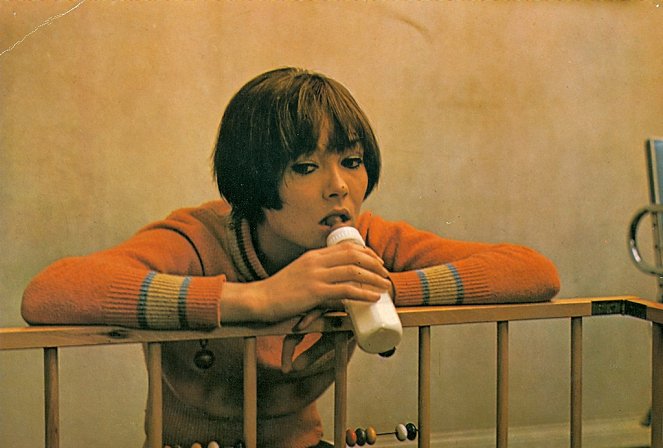Regie:
Roland KlickDrehbuch:
Roland KlickKamera:
Robert van AckerenMusik:
Roland KlickBesetzung:
Sascha Urchs, Ulrich Beiger, Sieghardt Rupp, Renate Roland, Jürgen Jung, Philipp Sonntag, Gerda-Maria Jürgens, Edith Volkmann, Hans Kahlert (mehr)Inhalte(1)
Damit die Eltern mit den Nachbarn ein Betriebsfest besuchen zu können, soll deren Tochter Monika auf die kleine Katrin aufpassen. Doch die junge Frau vergnügt sich lieber mit ihrem Freund und überlässt das Kind der Obhut ihres Bruders Achim, welcher das Mädchen im Verlauf des sonnigen Nachmittags ohne jede Regung mit einer Plastiktüte erstickt und anschließend ihre Leiche auf einem nahegelegenen Schrottplatz versteckt. Als die Sippe volltrunken zurückkehrt, beginnt eine fieberhafte Suche nach dem spurlos verschwundenen Kind. Die Nerven aller Beteiligten liegen blank und mit jeder weiteren Sekunde der Ungewissheit beginnt die Fassade zu bröckeln, und unter der Oberfläche des kleinbürgerlichen Familienidylls kommt der menschliche Wahnsinn zum Vorschein. Als Achims Vater mit der Wahrheit konfrontiert wird, entschließt er sich zu einem drastischen Schritt. (Media Target Distribution)
(mehr)Kritiken (2)
Mit einem kühlen, fast dokumentarischen Ansatz erzählte Geschichte eines Jungen, der aus unbekannten Gründen (möglicherweise aufgrund eines ungesunden familiären Umfelds) eine kaltblütige Tat begeht. Zur damaligen Zeit musste der Film aufgrund seiner Authentizität und der Darstellung eines unkonventionellen Charakters eines Kinderkillers wirklich beunruhigend und beispiellos sein. Heute wartet "S" mit dem Gesicht eines Kindes darauf, wiederentdeckt zu werden, und verdient definitiv Aufmerksamkeit.
()
For his feature debut, Roland Klick found inspiration in newspaper articles reporting on unrelated murders committed by children. Instead of a superficial scandalisation or a moralistic appeal, however, he presents to viewers a complexly multifaceted picture of a contemporary small German town. At the same time, he incorporated into the screenplay a reflection on his own adolescence and the dynamics of his family’s household. He shot the film in his parents’ house, not because he wanted to emphasise the autobiographical storyline, but because he had thought out the scenes and camera movements precisely with respect to the arrangement of the given space. The narrative establishes a web of characters connected by little Achim, who kills his younger sister seemingly without reason and without remorse, and then guiltily disposes of her body. Klick builds tension around the act and the subsequent disposal of the corpse with excruciating precision. Through the other family members and their friends, he concurrently depicts small-town life as an essentially superficially ordered world dispirited by hopelessness, boredom and unfulfilled dreams. In its time, Little Vampire elicited tremendous outrage among critics and a substantial part of the audience, not because of the film’s subject matter, but because of Klick’s handling of it. Contemporary reviews chastised him for not taking a judgemental position toward the character of the young murderer and for not offering any clear-cut conclusions. Klick’s debut thus established his position as a wilful outsider in contemporary German cinema. With his creatively distinctive films, which at the same time were attractive to viewers, Klick irritated both his fellow travellers from the “young German cinema” and later the "new German cinema", as well as fans of uniform genre products. Today, Little Vampire is one of the celebrated milestones of German cinema, which, because it did not bow to any of the trends of the time, has lost none of its stimulating effect or expressiveness, even though it primarily relates to the German economic miracle of the 1960s. [written for the 2018 Summer Film School]
()


Werbung